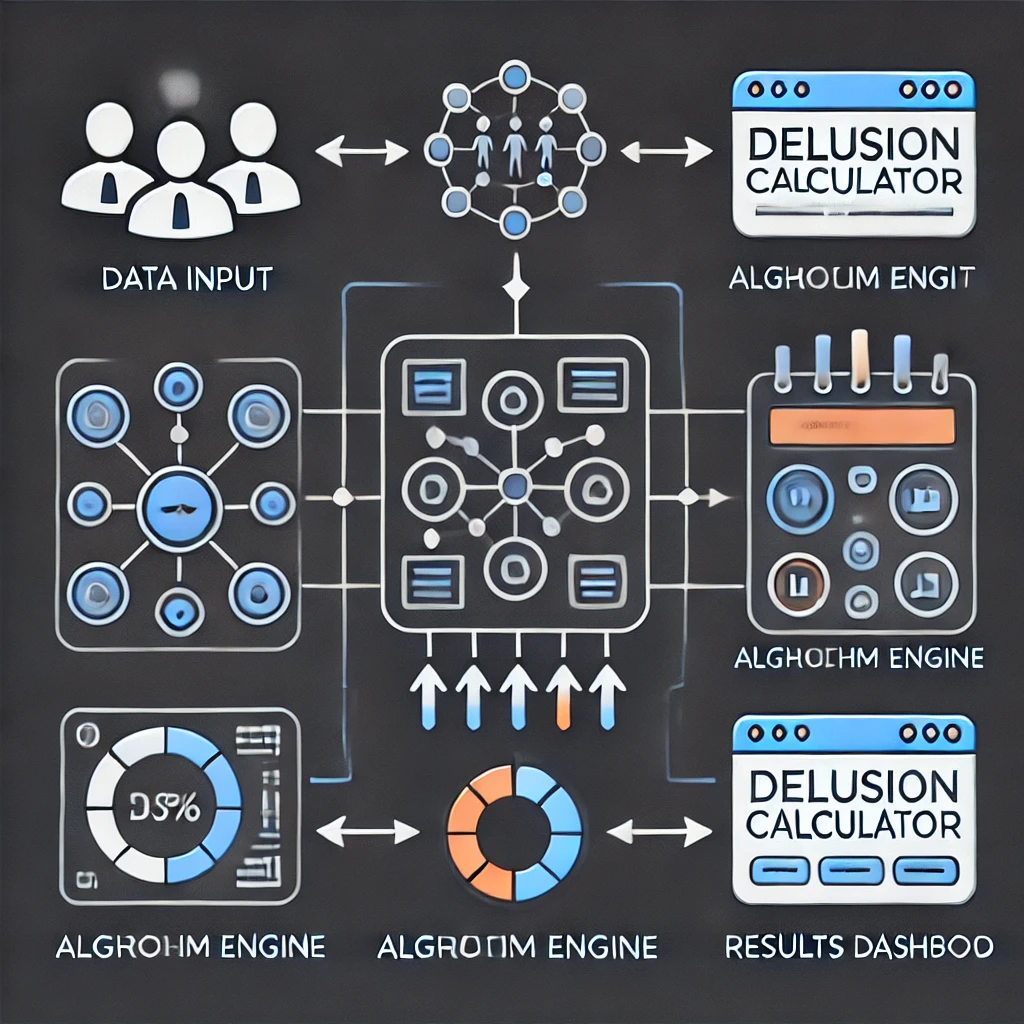The Delusion Calculator is an innovative tool designed to assist individuals and professionals in examining cognitive distortions and patterns of delusional thinking.
Understanding the Delusion Calculator:
Definition of Delusion Calculator
It is a specialized tool created to identify and analyze delusional thinking patterns.
History and Development
The Calculator emerged from the need to quantify and understand cognitive distortions better.
Purpose and Importance
The Calculator aims to help individuals and mental health professionals identify and address delusional thinking patterns.
Conversely:
How it Works:
Basic Functionality
The Calculator processes user input to detect cognitive distortions. Users enter their thoughts and experiences, and the tool analyzes this data to provide insights into potential delusions.
Key Components
- Data Input Interface:
Where users input their thoughts and experiences. - Algorithm Engine:
Processes the input data using advanced algorithms. - Results Dashboard:
Displays analysis and insights in a user-friendly format.
Algorithms and Calculations
The algorithms in this Calculator are based on cognitive psychology principles. They assess the input data for patterns indicative of common delusions, such as grandiosity or paranoia.

Applications of this Calculator:
Personal Use
Individuals can use the Calculator to gain insights into their thought patterns.
Clinical Settings
In clinical settings, mental health professionals use this Calculator to complement traditional assessment methods.
Research and Academia
This Calculator is also valuable in research and academia. Researchers use it to study cognitive distortions.
Benefits of Using the Delusional Calculator:
Enhancing Self-Awareness
It helps individuals become more aware of their thought patterns. Increased self-awareness is crucial in managing and overcoming cognitive distortions.
Improving Mental Health Treatment
For mental health professionals, this Calculator provides an objective measure of cognitive distortions.

Supporting Research
The data generated by the Calculator is invaluable for research purposes.
Step-by-Step Guide:
Initial Setup
To start using the Calculator, set up an account and get familiar with the interface. Most calculators offer a user-friendly setup process, guiding you through the initial steps.
Inputting Data
Once set up, you can begin inputting your thoughts and experiences. Be honest and detailed in your inputs, as the accuracy of the analysis depends on the quality of the data provided.
Interpreting Results
After inputting your data, this Calculator will process it and provide a detailed analysis.
Case Studies and Examples:
Personal Case Studies
Consider a personal case study. Jane, a 30-year-old professional, used the Delusion Calculator to understand her frequent feelings of inadequacy.
Clinical Case Studies
In a clinical setting, a therapist used this Calculator to assess a patient with symptoms of paranoia.
Conclusion:
The Delusion Calculator is a remarkable tool for analyzing cognitive distortions, benefiting individuals, clinicians, and researchers alike. By enhancing self-awareness, improving mental health treatment, and supporting research, it plays a crucial role in the field of mental health.

